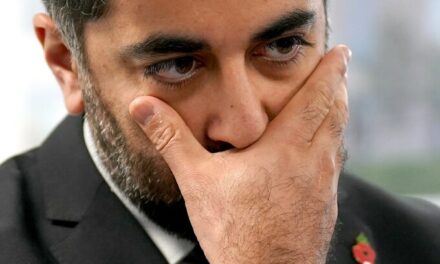a senior Metropolitan Police officer has been dismissed from duty after allegedly misgendering an individual involved in a failed detonation attempt attributed to Al Qaeda. The incident has ignited a fierce debate surrounding political correctness and law enforcement protocols.
According to sources, during the course of the investigation into the thwarted attack, the officer referred to the Al Qaeda suspect with incorrect gender pronouns. This purported act of misgendering has been met with severe criticism from various quarters, highlighting the growing emphasis on respecting and affirming gender identities, even in the most sensitive and challenging circumstances.
Critics argue that by misgendering the individual involved, the officer displayed insensitivity and violated their right to be referred to with appropriate pronouns. They argue that such acts perpetuate discrimination and contribute to a hostile environment for transgender individuals.
Proponents of the officer’s dismissal maintain that adhering to proper gender pronouns is crucial in demonstrating respect and inclusivity. They contend that regardless of the circumstances or the nature of the individual’s actions, it is essential to uphold these principles as a matter of human rights and dignity.
The dismissal has sparked a broader discussion regarding the intersection of law enforcement, political correctness, and the challenges faced by officers in high-stakes situations. Critics argue that prioritizing the use of correct gender pronouns in such instances detracts from the primary goal of ensuring public safety and combating terrorism.
Others, however, argue that upholding respect for gender identities should remain a priority, even within the realm of law enforcement. They assert that sensitivity and inclusivity are not mutually exclusive to effective security measures and can be integrated into the operational protocols of law enforcement agencies.
The controversial case has prompted calls for further training and awareness programs within police forces, aiming to educate officers about the importance of using appropriate gender pronouns and fostering a more inclusive environment. However, skeptics argue that such measures may divert resources and attention from more pressing law enforcement priorities.
As this debate rages on, it serves as a stark reminder of the evolving landscape surrounding gender identity and the challenges faced by law enforcement agencies in adapting to these changes. Balancing the imperatives of public safety, human rights, and sensitivity remains a complex task that requires ongoing dialogue and thoughtful consideration.
The dismissal of the senior Met officer for misgendering an Al Qaeda member during a failed detonation attempt has raised important questions about the role of political correctness in law enforcement and the delicate balance between respecting gender identities and ensuring effective security measures. The outcome of this case will undoubtedly have far-reaching implications for future law enforcement practices and protocols.

















OK, I know this is a spoof site, but that is almost believable!